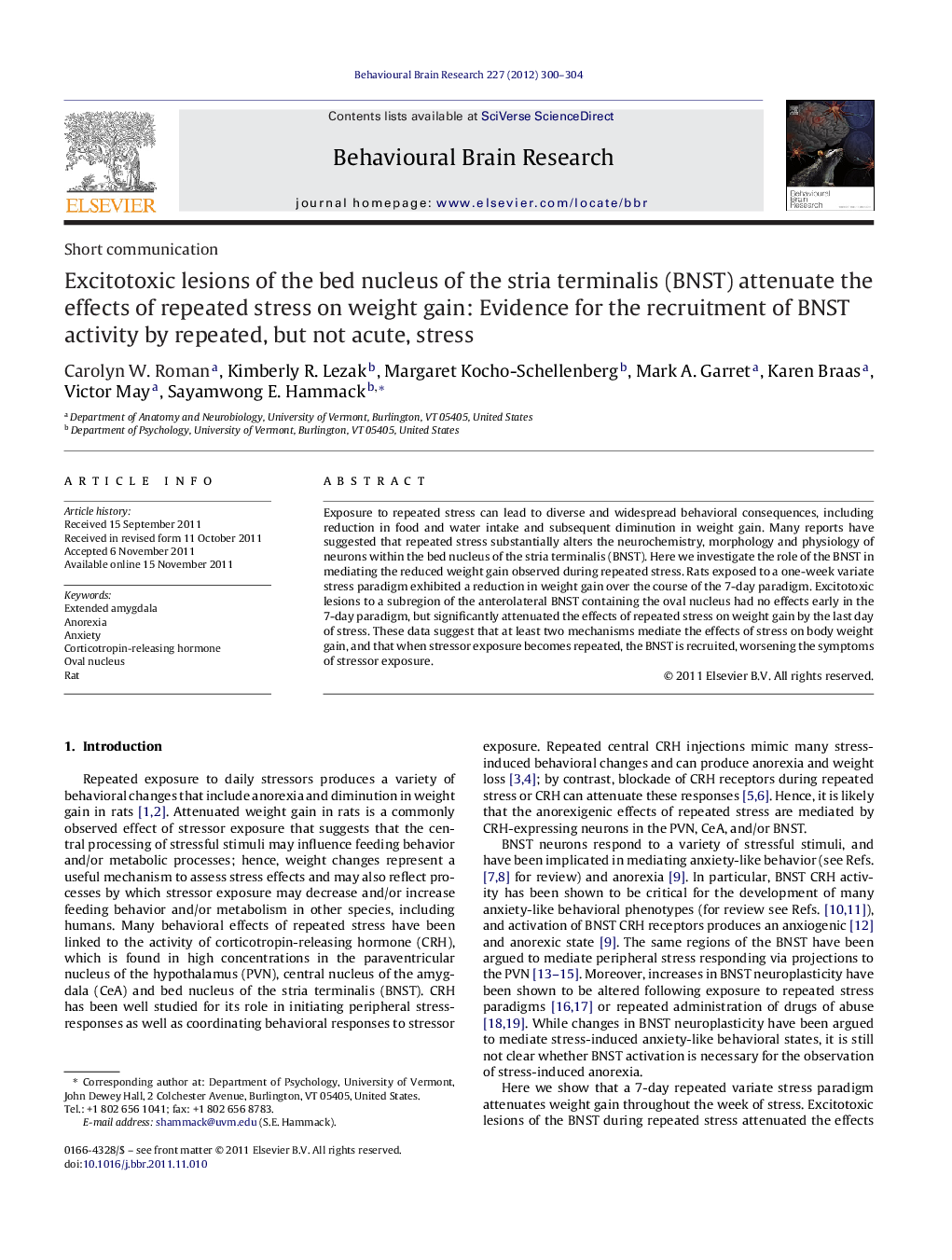| Article ID | Journal | Published Year | Pages | File Type |
|---|---|---|---|---|
| 4313416 | Behavioural Brain Research | 2012 | 5 Pages |
Exposure to repeated stress can lead to diverse and widespread behavioral consequences, including reduction in food and water intake and subsequent diminution in weight gain. Many reports have suggested that repeated stress substantially alters the neurochemistry, morphology and physiology of neurons within the bed nucleus of the stria terminalis (BNST). Here we investigate the role of the BNST in mediating the reduced weight gain observed during repeated stress. Rats exposed to a one-week variate stress paradigm exhibited a reduction in weight gain over the course of the 7-day paradigm. Excitotoxic lesions to a subregion of the anterolateral BNST containing the oval nucleus had no effects early in the 7-day paradigm, but significantly attenuated the effects of repeated stress on weight gain by the last day of stress. These data suggest that at least two mechanisms mediate the effects of stress on body weight gain, and that when stressor exposure becomes repeated, the BNST is recruited, worsening the symptoms of stressor exposure.
► Lesion to the anterolateral BNST blunted the attenuation in weight gain during a chronic stress paradigm. ► The blunted response was apparent only in the last few days of stress. ► Data suggests multiple mechanisms for stress-induced anorexia.
